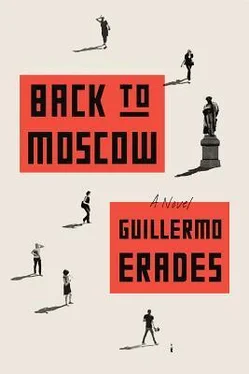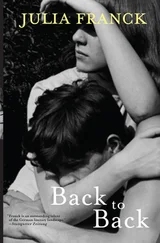The years go by and Dushechka’s house grows shabby. She is now an old woman, who spends her summers sitting on the porch and her winters looking through the window at the snow.
Then, one day, the vet, now an older man, shows up in town with his wife, with whom he had reconciled. Dushechka lets them stay at her place, and somehow ends up taking care of their nine-year-old boy. In the child, Dushechka finds someone to love, a new purpose in life. Now she cares about the school curriculum and other child-related issues. With something to whine about and occupy her days, Dushechka is happy again.
As interesting as Chekhov’s story is Tolstoy’s interpretation, which gives us an original take on the mystery of Olga’s soul. In a review of Dushechka , Lev Nikolaevich says that Chekhov, intending to mock the unsophisticated woman, had accidentally created an endearing character. Tolstoy goes on to accuse Chekhov of being harsh on Dushechka, by judging her intellect and not her soul. Olga’s soul, according to Tolstoy, embodies the capacity of Russian women to love unconditionally, a virtue unknown to men. It is through this unconditional love, he suggests, that women achieve happiness.
YEARS LATER, I CAN SEE that the moment at the Revolution Museum, as I stood absorbed by the silent call of a woman in a poster, had the makings of a spiritual awakening — like the instant Raskolnikov finally realises he needs to confess his crime and move on with his life and his punishment.
If my life in Moscow had been a Dostoyevsky novel, Polina’s tears at my apartment would have carried the seeds of my epiphany, and the dark feeling that accompanied me during the days that followed would have — perhaps at that very moment in the Revolution Museum — emerged at the surface of my conscience as clear regret.
But back then I didn’t know. I couldn’t know, really, distracted as I was by the city. Despite the odd doubt about the purpose of my life — despite the fatigue, the sleepless hours in bed, the morning headaches — come the weekend, I would put on a well-ironed shirt, drink shots of vodka and go out with the brothers to nightclubs. And in this way we spent our weeks, our months, and never did I stop to think that all of this could, one day, come to an end.
By late spring, Yulya Karma had stopped visiting me on a regular basis. We still saw each other for tea, but only every two or three weeks. It was nicer this way, because our bodies had time to get unaccustomed to each other, and we clashed with more zeal. One day, Yulya Karma told me she had decided to leave her boyfriend and proposed, in the same businesslike manner as when she’d first offered to be my lover, that she be my girlfriend. ‘I think we are very compatible,’ she said, ‘we would be very good together, as a real couple.’ I told her it wouldn’t really work because, even though I was quite fond of her, I would never be able to fully trust her. I think she understood. And it was a pity, I thought, because I liked her and she had a touch of pragmatism that made her different from the other girls; so practical and focused, Yulya Karma, and she could have made a good girlfriend, were it not for her natural talent for deceit.
Colin said, in the end, we were all searching for the perfect girl, the Export Quality Dyev, as he put it — the perfect woman to take home with us the day we had to leave Moscow.
Maybe he was right. Perhaps all the going out was, after all, just a protracted search for someone we could keep. A futile search, I now understand, because, ever since Katya had left me in Amsterdam, I couldn’t bring myself to define what I was looking for and, had I encountered it, I would not have known. What I craved was a particular thrill, a wave of euphoria, a resonance in my soul, which was becoming harder to feel with each new girl I met.
I lost contact with Ira. A couple of times we’d agreed to meet for coffee at the university but, for different reasons, I’d had to cancel at the last minute. We’d talked on the phone, and she told me she was considering leaving her American lover and getting back with Sergey. We agreed to go out for dinner to catch up, but I kept postponing, never finding the right time, until the plan faded away. It wasn’t that I didn’t want to see Ira, and at times I missed her company, but I found it hard to fit her into my life. We were out of sync, Ira and I. She lived at a slower pace, with her modest salary, going to Project OGI with her old friends, torn between Sergey and her one lover.
Stepanov’s car dealership, which he had set up in just a couple of months, was booming. He imported luxury vehicles from Finland, where he bought them for almost half their Moscow market price. He managed to avoid customs duties by profiting from a mix of bizarre legislative loopholes and good old Russian bribery. The cars were exhibited in a spacious salon in Prospekt Mira, which Stepanov had named Miller & Stevenson Luxury Vehicles, suggesting foreign ownership. To emphasise the non-Russian nature of the business — which, according to Stepanov, allowed for the cars to be marked up at least ten per cent above their price in Russian-owned dealerships — I was asked to show up often, particularly when serious buyers were expected. Oligarchs, flooded with enormous amounts of cash at the time, couldn’t get enough of the cars, and, by June, Stepanov was selling about a dozen luxury vehicles a month.
He kept a black BMW for himself — a bumer, he called it — which gave him much to talk about but rarely left its parking place in Stepanov’s courtyard. To the chagrin of those Muscovites who could now afford decent cars, it remained much easier to navigate the city by public transport or the large and very efficient fleet of unofficial taxis permanently cruising the streets.
We had a great summer that year. Truth be told, I don’t remember much of the legendary nights of the summer of 2001. It’s not that I forgot them — it’s more that they never registered in my vodka-soaked mind. I only know what happened because I recall Colin, Diego, Stepanov telling and retelling our stories in Starlite, or at Stepanov’s place, and the stories that weren’t told back then were for ever lost, and, in the end, my memories of those great nights are not my own memories, but those I borrowed from the brothers.
IN SEPTEMBER RUSSIA changed again.
A week after the attacks in New York and Washington, in the midst of worldwide soul-searching and hysteria — as the Western media talked about the war against civilisation, or ‘the day that changed the world’ — The Exile came out with an article that caused a stir among expats. Under the heading ‘Be Cool, America’, the article said, more or less, that America had it coming.
Russians also seemed to have mixed feelings about these historical events, brought up as they were to hate their Cold War foe. Russian leaders, including the president, rushed to publicly offer condolences and assistance but, if you looked carefully at the TV while they spoke, you could detect a trace of a smirk on their faces.
These are the kind of people we have to deal with in today’s world, Russian politicians said, referring in the same breath to the war in Chechnya. But Russia went ahead and allowed America to use its air space to attack terrorist bases in Central Asia. Russia also shared intelligence from the soviet experience in Afghanistan. All of this was unprecedented, historical in fact, and, in the few weeks after 9/11, Moscow expats had the feeling that Russia was warming to the West. Russian leaders sounded more obliging, helpful and understanding than ever before, perhaps thinking that, if the world was to be split along a new Iron Curtain, they wished to be, this time, on the right side of history.
Читать дальше












